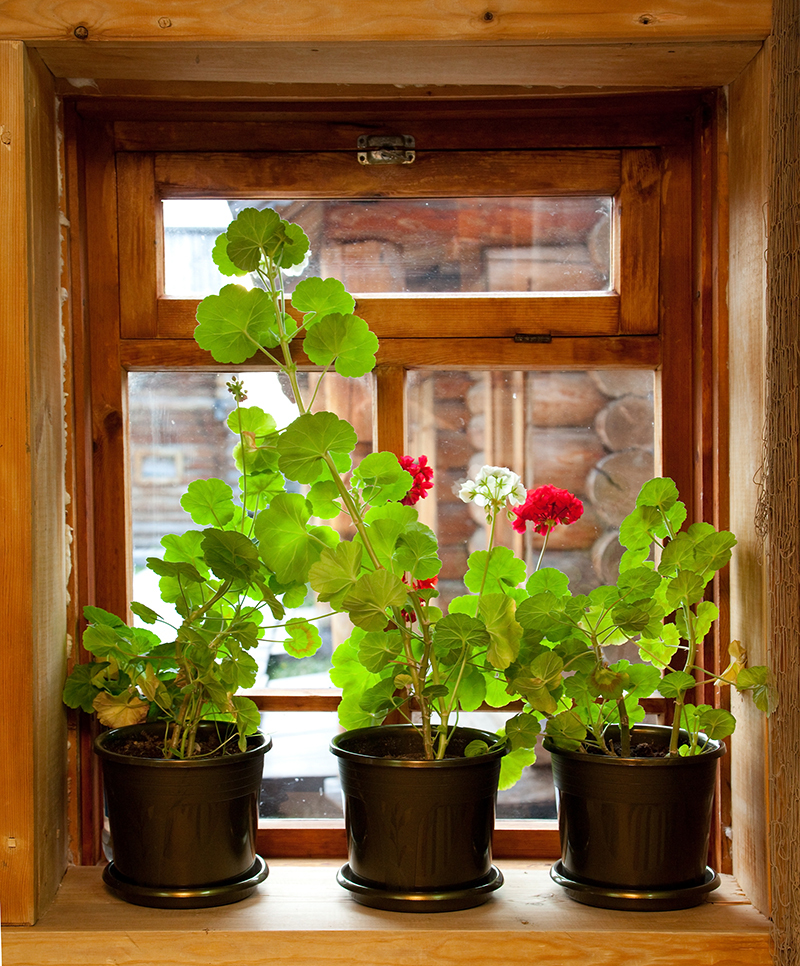Get enchanted by these 7 surprising facts about tulips
Posted on 17/08/2025
Get Enchanted by These 7 Surprising Facts About Tulips
Tulips have held the fascination of humankind for centuries. Renowned for their vivid colors, mesmerizing patterns, and the symbolism they have accrued over time, tulips are much more than mere spring garden staples. Whether you're an avid gardener, a history buff, or simply someone who delights in the beauty of flowers, these 7 surprising facts about tulips will leave you enchanted and perhaps inspire your next trip to a mesmerizing tulip garden.

1. Tulips Did Not Originate in the Netherlands
It's a common misconception that tulips are native to the Netherlands. In reality, their story starts much farther east. The wild ancestors of the tulip grew naturally in the mountainous regions of Central Asia, particularly in areas that are now part of Kazakhstan, Uzbekistan, and parts of modern-day Iran.
- Central Asian roots: Tulips began their journey in the rugged terrain of Central Asia, thriving in arid climates with cold winters and hot summers.
- Spread through the Ottoman Empire: They were cultivated and cherished in the gardens of the Ottoman Empire, especially in Turkey, well before reaching Western Europe.
- Naming and symbolism: The name "tulip" is derived from the Turkish word "tulbend," which refers to a turban-perhaps inspired by the shape of the bloom.
Interesting fact: It was only in the late 16th century that tulips made their grand entrance into the Netherlands, captivating botanists and gardeners and eventually inspiring one of the world's earliest financial bubbles.
2. Tulip Mania: The World's First Economic Bubble
If you've studied economic history, you've probably encountered the fascinating phenomenon of Tulip Mania. During the Dutch Golden Age in the early 17th century, tulips became so wildly popular that their bulbs were treated almost like modern-day investment commodities.
What Exactly Happened During Tulip Mania?
- The craze: The demand for rare and unusually colored tulip varieties skyrocketed, particularly those affected by a mysterious virus (later called the Tulip Breaking Virus) that caused unique streaks and patterns.
- Sky-high prices: At the height of the frenzy, some single tulip bulbs sold for more than the price of a house!
- The crash: In 1637, prices dramatically collapsed, leaving many speculators bankrupt and triggering a wider economic fallout, making Tulip Mania the first recorded speculative bubble in history.
Tip for visitors: Today, tulip festivals across the Netherlands celebrate this unique history and display the country's enduring love for these remarkable flowers.
3. There Are Over 3,000 Varieties of Tulips
Did you know that there are more than 3,000 registered varieties of tulips spanning a rainbow of colors and an array of fascinating shapes? In fact, tulips are classified into 15 different groups by the Royal Horticultural Society (RHS), based on their flower form, size, and blooming period.
- Early bloomers: Varieties such as the Single Early and Double Early tulips are the first to greet the spring sun.
- Fringed and Parrot tulips: With fringed or feathered petals, unusual colors, and dramatic shapes, these cultivars steal the show in gardens and floral arrangements.
- Triumph, Lily-flowered, and more: With groups ranging from Triumph to Viridiflora (meaning "green flower") and Rembrandt tulips (known for their streaked petals), there's a tulip for every taste.
Pro tip: If you're keen to grow tulips in your garden, explore the diverse species and hybrid tulips available at trusted nurseries. Each variety brings unique charm and color, ensuring a spectacular spring show.
4. Tulips Can Be Eaten (But With Caution!)
Many people are surprised to learn that tulips are technically edible! During World War II, the Netherlands faced a devastating famine, and tulip bulbs became a critical source of nutrition for many families when other food supplies ran out.
- Survival food: People boiled or baked tulip bulbs, sometimes using them as a substitute for onions or potatoes.
- Culinary cautions: Only certain varieties are safe to eat, and the bulbs must be prepared carefully to avoid toxicity. The petals are sometimes used as garnishes or in salads by modern chefs, offering subtle sweetness.
- It's not recommended: While historical accounts show tulips can be consumed in dire circumstances, they contain glycosides that can cause stomach upset or worse if eaten in significant quantities or not properly prepared.
Fun fact: Some high-end restaurants experiment with tulip petals to add color and a delicate flavor to dishes, transforming the humble tulip into an artisanal ingredient.
5. Tulips Symbolize Deep Meanings Across Cultures
Much like roses, tulips carry an array of meanings--from declarations of love to spiritual renewal. Their symbolic significance varies across regions and time periods, adding depth to every bouquet.
- Love and passion: In many Eastern cultures, red tulips are seen as a bold declaration of love and undying passion.
- Royalty and abundance: The Persian and Ottoman empires cherished tulips as symbols of prosperity and royalty. They often appeared in palace gardens and fine art.
- Perfect love: Victorians popularized the idea of tulips as a symbol of "perfect love," especially in the language of flowers.
- Spring and new beginnings: For many, tulips signify the arrival of spring and represent renewal and fresh starts.
Did you know? The black or deep purple tulip, a horticultural marvel, has become a symbol of mystery and unattainable love--a rare beauty often depicted in poetry and art.
6. The Netherlands Is the World's Tulip Capital
Though not native to the Netherlands, tulips have become deeply intertwined with Dutch identity. Today, the Netherlands is the world's top tulip producer, responsible for growing and exporting billions of tulip bulbs each year.
Staggering Stats:
- Over 7 billion tulip bulbs are grown in the Dutch countryside annually.
- Exports reach over 100 countries, from the USA to Japan and Russia.
- Keukenhof: The largest spring flower garden in the world, located in Lisse, showcases over 7 million tulips and attracts more than a million visitors each spring.
Insider tip: The best time to witness endless fields of tulips in bloom is typically from mid-April to early May. The Keukenhof Gardens is a must-see for any flower lover, while the endless flower parades and regional festivals bring the tulip experience to life.
7. Tulips Inspire Art, Fashion, and Architecture
Tulips are not just botanical marvels--they're icons of culture, art, and design. For centuries, their elegant forms and vibrant hues have been a favorite motif for artists, craftsmen, and designers across the globe.
- Artistic inspiration: Tulips adorned Ottoman tiles, illuminated Persian manuscripts, and inspired beloved Dutch painters like Rembrandt and Jan Brueghel.
- Modern fashion and design: Today, the unique shape and striking color contrasts of tulips can be found in haute couture, interior design, and even jewelry.
- Architectural homage: The Tulip Period (1718-1730) in Ottoman Turkey was characterized by a flourishing art scene, inspired by tulip motifs in everything from palace gardens to textiles and ceramics.
Fun tidbit: The "Black Tulip" remains a legendary fantasy for plant breeders, reflecting the seemingly never-ending quest for perfection that tulips inspire.
How to Grow and Enjoy Tulips at Home
If you're captivated by these surprising tulip facts, why not try growing them yourself? Tulips are relatively easy to care for, rewarding growers with dazzling blooms each spring. Here's a quick guide for beginners:
Planting Tips
- Timing: Plant bulbs in autumn, several weeks before the first hard frost is expected.
- Location: Choose a sunny spot with well-drained soil to prevent bulb rot.
- Depth: Place bulbs about 6 to 8 inches (15-20cm) deep, pointed side up.
- Care: Water after planting, then let nature do the rest. Tulips generally require little care over the winter.
Pro gardener tip: For a continuous display, mix early, mid, and late-blooming varieties. Protect from pests like squirrels and deer by using wire mesh or natural repellents.

Fascinating Tulip Festivals Worldwide
Still eager to be enchanted by tulips? Every spring, millions gather at tulip festivals around the world to celebrate their beauty.
- Keukenhof Tulip Festival (Netherlands): Witness millions of tulips in countless hues and configurations across stunningly landscaped gardens.
- Canadian Tulip Festival (Ottawa): Founded as a gesture of gratitude for Dutch assistance during World War II, the festival boasts over a million blooms each May.
- Skagit Valley Tulip Festival (USA): See endless flower fields in Washington State's famous Skagit Valley all throughout April.
- Istanbul Tulip Festival (Turkey): Experience the tulips' return to their adopted homeland throughout the city's historic parks and gardens.
Conclusion: The Enduring Magic of Tulips
From their ancient origins to their starring role in art and finance, tulips remain one of the most intriguing and beloved flowers on Earth. Whether you marvel at a wild field's riot of color or the precisely arranged beds of a formal garden, these blooms continue to enchant and inspire generation after generation. Next time you see a tulip, remember the rich tapestry of history, culture, and beauty it embodies--and perhaps let it add a touch of magic to your own life.
Now that you know these 7 surprising facts about tulips, why not start your own tulip journey? Plant some bulbs this fall, visit a local festival, or simply enjoy a bouquet on a sunny spring day. The world of tulips awaits--full of wonder, history, and color!
Latest Posts
Delight Them with Handpicked Birthday Flowers
Transform Your Garden with Proper Hydrangea Care
Get enchanted by these 7 surprising facts about tulips





